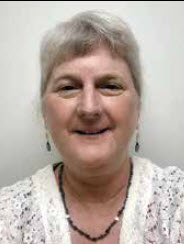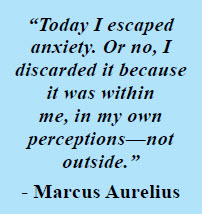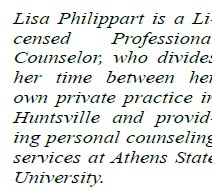 By: Lisa Philippart
By: Lisa Philippart
Note: Please do not use this information to self-diagnose. Consult a professional.
This is the last article in my series on Personality Disorders (PD). We have already discussed the categories of Suspicious and Emotional and Impulsive Personality Disorders. Here we will look at the Anxious Personality Disorder category, which includes Avoidant, Dependent, and Obsessive-compulsive Personality Disorder (OCPD.)
We all have things, places, or people we don’t like, or which make us anxious. But if these things cause so much anxiety that you struggle to maintain relationships in your life, you may fit the criteria for Avoidant Personality Disorder (sometimes called Anxious Personality Disorder.) With this type of PD, you may choose to avoid work or social activities that require you to be with others. You may expect disapproval and/or criticism and be very sensitive to it. You may worry constantly about being “found out,” rejected, ridiculed, or shamed by others. A paradox often exists between avoiding relationships, friendships, and intimacy because you fear rejection, yet because of this, feeling lonely and isolated, even inferior to others. Often those with avoidant personality disorder are reluctant to try new activities for fear of embarrassment. So, you may be asking, what is the difference between generalized anxiety  disorder (GAD) and avoidant personality disorder? The main difference is that people with GAD often know their fears are irrational, while people with avoidant personality disorder believe that they are inferior to others, and therefore rejection and humiliation are not only inevitable but deserved.
disorder (GAD) and avoidant personality disorder? The main difference is that people with GAD often know their fears are irrational, while people with avoidant personality disorder believe that they are inferior to others, and therefore rejection and humiliation are not only inevitable but deserved.
It is natural to need other people to care for us or give us reassurance sometimes. A healthy balance involves being able to both depend on others as well as being independent from others at times. However, if feelings and thoughts about needing others becomes so overwhelming that they impact your daily life and relationships, you may fit the criteria for Dependent Personality Disorder (DPD.) With this PD you may believe/feel needy, “weak,” and unable to make decisions or function day to day without help or support from others. You may allow or require others to assume responsibility for many areas of your life. Sometimes you agree to things you feel are wrong or you dislike, to avoid being alone or losing someone’s support. Because you are afraid of being left to fend for yourself, you often have low self-confidence, seeing others as being much more capable than you are. Those with DPD often feel helpless, submissive, and have trouble making decisions.
 Obsessive Compulsive Personality Disorder (OCPD) is separate from obsessive compulsive disorder (OCD,) which describes a form of behavior rather than a type of personality. The symptoms of OCD tend to fluctuate in association with the underlying level of anxiety. OCPD, as a personality disorder, is defined by inflexibility…the behaviors tend to be persistent and unchanging over the long term. However, both OCPD and OCD involve problems with perfectionism, the need for control, and significant difficulty being flexible in how you think about things. With OCPD you may need to keep everything in order and under your control. You set unrealistically high standards for yourself and others, to the point that yours is the best and only way of doing things. You most likely worry about you or others making mistakes, feeling anxious if things aren’t “perfect.” Often those with OCPD present with strict adherence to rules in a rigid way, acting restrained or restricted in their emotions.
Obsessive Compulsive Personality Disorder (OCPD) is separate from obsessive compulsive disorder (OCD,) which describes a form of behavior rather than a type of personality. The symptoms of OCD tend to fluctuate in association with the underlying level of anxiety. OCPD, as a personality disorder, is defined by inflexibility…the behaviors tend to be persistent and unchanging over the long term. However, both OCPD and OCD involve problems with perfectionism, the need for control, and significant difficulty being flexible in how you think about things. With OCPD you may need to keep everything in order and under your control. You set unrealistically high standards for yourself and others, to the point that yours is the best and only way of doing things. You most likely worry about you or others making mistakes, feeling anxious if things aren’t “perfect.” Often those with OCPD present with strict adherence to rules in a rigid way, acting restrained or restricted in their emotions.
By: Lisa Philippart
Licensed Professional Counselor







